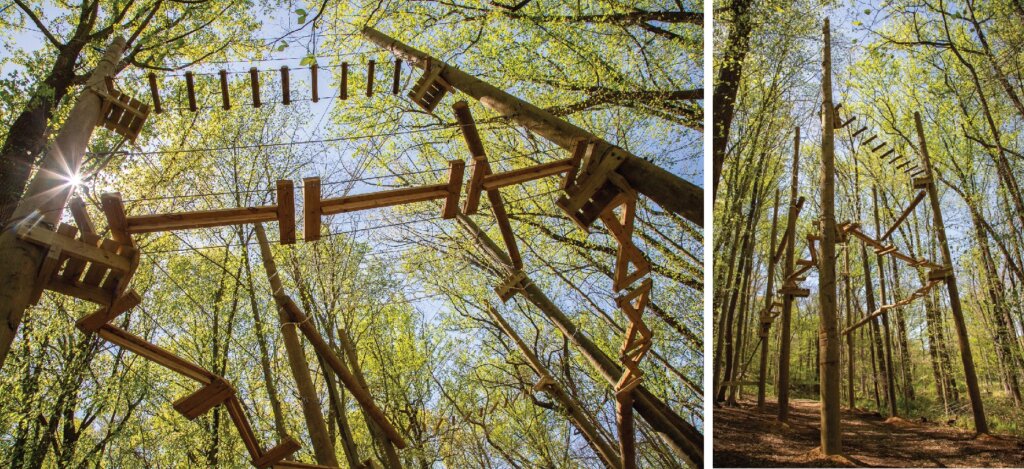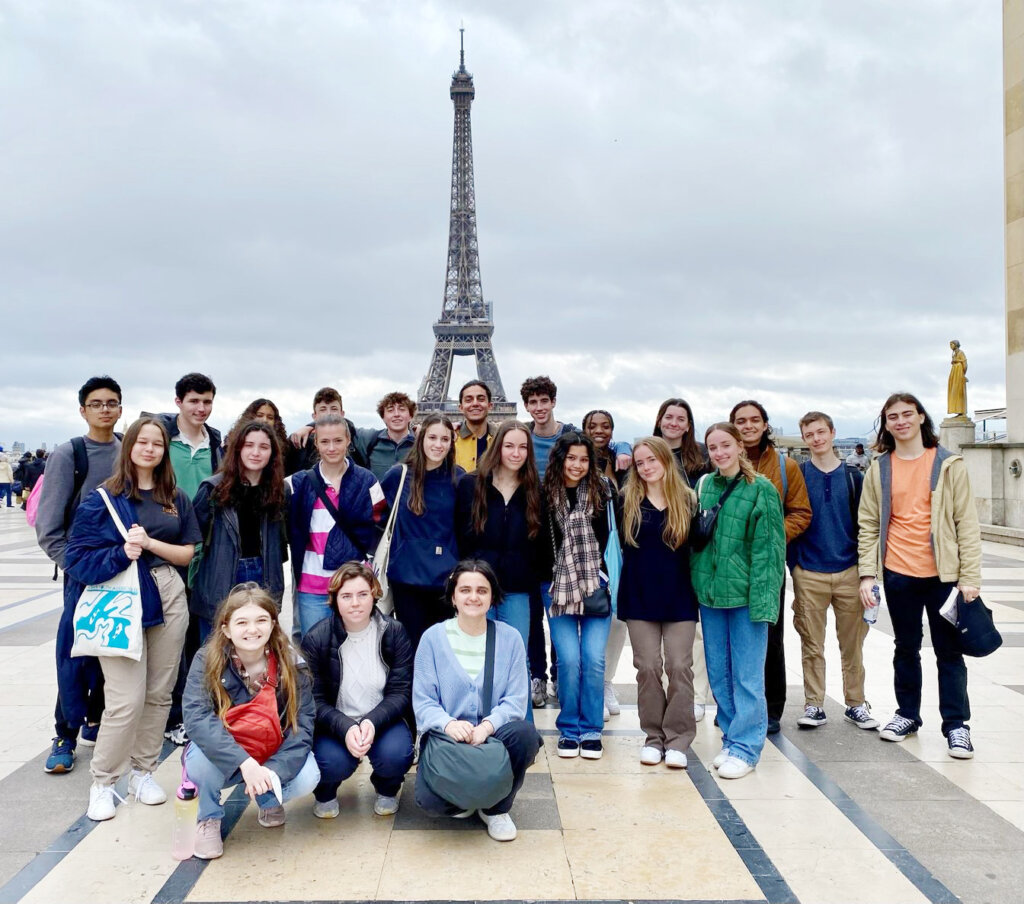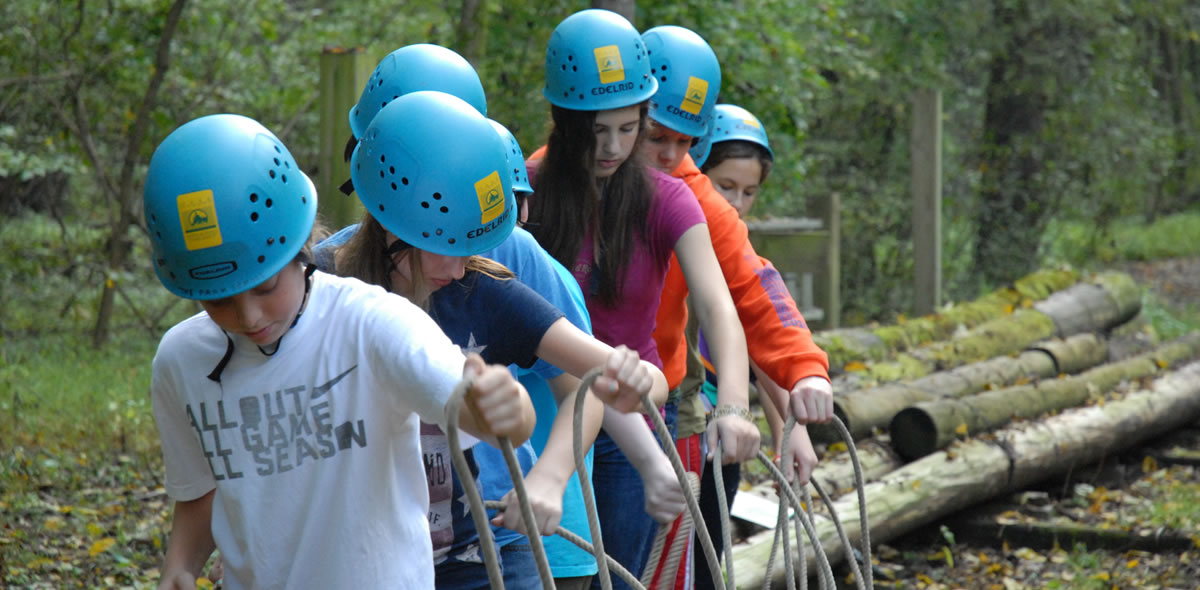History
The Park School history department considers the ultimate goal of historical study at the secondary level to be the formation of those attitudes and skills that enable students to understand the world around them so that they can constructively participate in a democratic society.
We hope to graduate young people who recognize the non-objective nature of information and who take the time to seek out and compare alternative contentions in arriving logically at personal positions concerning the key issues of their world.
The emphasis in course organization is generally on historical problems, and assignments emphasize a discriminating analysis of both primary sources and secondary interpretations. We employ a variety of readings and teaching techniques to stimulate and develop effective self-expression, both written and oral. Basic historical research skills are taught in required courses, culminating in a major research paper each year.
Three years of history are required for graduation; additionally, most students take at least one elective course in history.
Independent Studies can be arranged in the history department for semester credit; every year a small number of students — usually juniors and seniors — seek this opportunity to work independently on a subject of their interest.
Requirements
- Grade 9: Foundations in History
- Grade 10: Modern World History
- Grade 11: United States History
History 9: Foundations in History
Grade 9 • Required
In 9th Grade history, students will pursue a year-long exploration of history as a tool for examining histories local and global. The goal is to provide students with foundations in skills and understandings they can carry into future history classes and learning experiences in the Upper School and beyond. Students develop essential skills like source analysis and crafting arguments. They will also gain exposure to the wide range of ways to communicate findings. The fall semester focuses on an introduction to skills and modes of doing history, which students will apply as they study major turning points in the history of Baltimore and in the world. All of this builds up to students designing and producing their own projects on some aspect of that history for an audience beyond their teacher. In the second semester, students will turn to foundational explorations of parts of the world they will examine on a deeper level in future years.
History 10: Modern World
Grade 10 • Required
At the heart of study in History 10 is an examination of the modern world and the ways we got to our global present. To that end, students will be asking some essential questions: What have been foundational commercial, political, and technological revolutions in the world between 1400 and the present? How did those revolutions transform the systems of power, ideology, and ecology that shaped the world order? How did different groups reckon with those changes? What lessons are there for understanding the systems that shape our world today? Students will also complete an independent research project, building on the skills they developed in the ninth grade.
History 11: United States
Grade 11 • Required
This course offers an in-depth look at contingencies, complexities, continuities, and change over time in the history of the United States. Organized thematically, the course works through three chronological sweeps from the 17th century to the present based around the following themes: American Colonies & American Capitalism; American Rights & American Protest; and American Identities & American Empire. Students will ask about rights and privileges, structures of power and resistance, laws and their challengers, cultures and ideas, wealth and poverty, and the United States in a global context. The class will continue to hone their historical skills and habits of mind, and work will include an independent research project.
Art History: Recurring Themes
Grades: 10-12 • This course can be taken for arts or history credit.
More than ever before, we live in a world of man-made appearance, and whether we are conscious of it or not, what we see affects us. In this course, students will develop visual literacy and learn to recognize how various cultures have expressed and perpetuated many of their most deeply held values through art and architecture. The ultimate question is this: how does art (from painting and architecture to advertising and fashion) influence our own sense of reality and shape our own desires? To approach this question in a manageable way, students will examine three or four major themes that recur throughout art history, such as Sacred Space, The Body, Power & Protest, Gender & Identity, and The Environment. Students will study a broad range of works, comparing the ways artists from different time periods and cultures have responded to each theme. They will discuss, read, and write about art, and plan to take a field trip or two to see some art in person.
Civil Rights Movements and The U.S. Supreme Court
Grades: 10-12
This course examines the evolving role of the U.S. Supreme Court in shaping civil rights throughout American history. Through close reading of the US Constitution and landmark Supreme Court decisions, students will explore how the Court has both advanced and restricted the rights of individuals and marginalized communities. By engaging with primary source documents — court opinions themselves — students will develop their ability to interpret legal texts, evaluate constitutional arguments, and consider the broader social and historical contexts in which these decisions were made. The course invites critical discussion on the balance between justice and precedent, and challenges students to consider the dynamic relationship between the judiciary and movements for social change. The final project will consist of writing a well-researched amicus brief for one of the cases studied during the course.
Current Events and Historical Roots
Grades: 10-12
This course will explore current events and their historical underpinnings. Students will cut to the core of debates on a variety of national and international issues, beginning with the current administration, the modern Republican Party and its seeming departure from the long history of the conservative movement in the United States. Students will consider multiple perspectives and various policy decisions on immigration; as well as the United States’ involvement with China, Russia, and the Middle East. Topics will be supplemented by various readings, podcasts, and a daily consumption of various news sources. The ultimate goal will be for students to develop a global citizenship mindset, build a deep understanding of some of the most pressing issues in the world today, and grapple with various approaches to addressing them.
Genocide in the Modern World
Grades: 10-12
This course examines the phenomenon of genocide in the 20th and 21st century. Despite many international efforts to contain this form of mass violence, genocides have impacted communities across the globe at different points in the modern era. They remain one of the most enduring challenges to humanity. Through a close examination of case studies (the Armenian Genocide, the Holocaust, and the Rwandan Genocide, among others), the class will explore a host of topics. They include: the conditions that have fostered genocide; questions of responsibility, justice and punishment; the development of international structures and processes for dealing with genocide; legacies for impacted communities. Along the way, students will also dig into the definition of “genocide,” how and why that definition has evolved, as well as its legal and political implications.
Music and Migration: History and Literature of American Roots Music
Grades: 10-12 • This course can be taken for either History or English credit.
There are more differences between us than we can readily understand; there are also more similarities and connections, both historically and in our art. In this course, students will explore departures and continuities across three routes of traditional American migration. Seeking an understanding of the blues, jazz, bluegrass, and country music, they’ll ‘travel’ from the Mississippi Delta to Chicago, from Appalachia to the Mid-Atlantic megalopolis, and from Oklahoma to Bakersfield, California. Course texts may include Billie Holiday’s Lady Sings the Blues, Michael Ondaadtje’s Coming through Slaughter, and John Steinbeck’s’ Grapes of Wrath, as well as contemporary documents including the many songs that students will hear together.
Turning Points in the History of the Modern Middle East
Grades: 10-12
This course will examine the transformations that have taken place in Southwest Asia from the rule of the Ottoman Empire to the aftermath of the Arab Spring. The class will not attempt to tell the whole story end to end, but it will concentrate on those moments or case studies that best explain how we got where we are in the Middle East today. Themes will likely include an introduction to Middle Eastern art and culture, experiences of and reactions to colonialism, experiments in government, successful and unsuccessful revolutions, conflicting ideas of justice, modernization and its many definitions, nation-states and their alternatives, and the changing and overlapping identities which have united and divided groups in the region.
Case Studies in U.S. Women’s History
Grades: 10-12
“We hold these truths to be self-evident; that all men and women are created equal; that they are endowed by their Creator with certain inalienable rights; that among these are life, liberty, and the pursuit of happiness…” Declaration of Sentiments, Elizabeth Cady Stanton, 1848
The United States of America was founded on principles of equality, justice, and freedom. Yet as this nation was built, a patriarchy was born: unequal opportunities were bred, unjust systems were instated, and freedom was accessible only to those who were educated, wealthy, white, and male. By studying the exclusion and participation of women in American economic, political, and social life, students in this class will gain a more complete understanding of those who held America accountable to its founding principles. The course will focus on the evolving role of gender and on the struggles and achievements of American women from the mid-nineteenth to late twentieth century. Students will not only examine power relations between institutions, men and women, but they will also gain understanding of the power relations between women of different races, class, cultures, and sexual orientation. Through an inclusive approach, the class will consider case studies of women undermining the patriarchy with the aim of challenging old narratives of American history.
Comparative World Governments
Grades: 10-12
This course introduces students to the structures, functions, and guiding principles of governments around the world. By examining a range of political systems — parliamentary, one-party, multiparty, authoritarian, and hybrids — students will gain a deeper understanding of how power is organized, exercised, and limited in different national contexts. Readings will include excerpts from national constitutions, important political texts, and current events. Through case studies and class discussions, students will develop a global lens for evaluating governance and its impact on society. The final project will be to independently create a case study for a world government based on the models used in class.
Medieval Worlds
Grades 10-12
Knights in shining armor, Vikings in longboats, or peasants in straw huts: we have inherited romanticized images of medieval days. The knights, Vikings, peasants, and others who populated the medieval world were real people, however, with real problems, dreams, and ambitions. In this interdisciplinary course, students will use works of art and literature, as well as historical documents, to figure out what it was really like to live in the area around the Mediterranean between 1000 and 1300.
Race and Racism in Global Context
Grades: 10-12
What is race? What is racism? How and where did the concept of race emerge? How have understandings of what race means changed over time and space? How do the forms and expressions of racism affect people’s lived experiences? After investigating the driving forces, machinery, and consequences of racism in different parts of the modern world, students will study and ultimately advocate for various paths to liberation. Specific topics include the misuse of science (from craniometry to DNA ancestry testing) in racial classification; affirmative action in India and Brazil; efforts to secure reparations for the translatlantic slave trade in the Caribbean and the Indian residential school system in Canada; the colonial legacy of colorism in beauty standards in Asia; and contests over memorialization, from Richmond’s Monument Avenue to #RhodesMustFall in South Africa.
The Vietnam War
Grades: 10-12
The struggle for Vietnam occupies a central place in the history of the 20th century. How did it happen? Why were the Vietnamese at war with each other? Why did France, China and the US involve themselves? Why did so many people outside of Vietnam care? Why did it drag on for so many decades? Why does it continue to loom so large in American memory and foreign policy today? This seminar-style course draws on a rich variety of sources and perspectives to explore these questions. Specific topics include: the impact of French colonialism on traditional Vietnamese society; the role of World War II in the rise of nationalism and communism in Vietnam; the motives, stages, and strategies of American intervention in Vietnam; the experiences of the Vietnamese; the rise of the anti-war movement in the US; and the lessons and legacies of the conflict for both Vietnam and the United States.





